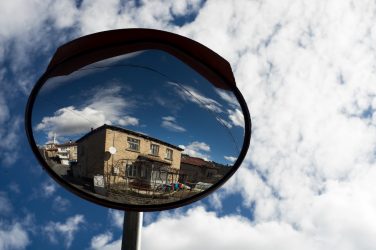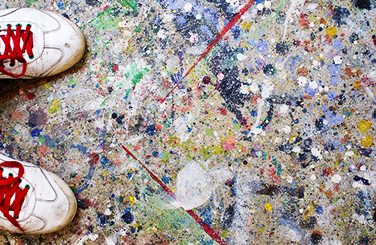On my last article I wrote about how the night time economy was changing in London and the cultural decay the city is experiencing. I also promised a second part for the article where I would give my impressions about the night scene in the city after the pubs shut.
The after hours in London is almost exclusively electronic and the standards are very high. The music is experienced in a different state of consciousness by a crowd that is too high to engage in a conversation. This is not much different from Berlin but over there there’s the option to stay at all sorts of different bars drinking all night whereas in London there simply isn’t. On the other extreme the, e’s Sao Paulo and Rio’s new electronic scene; they get some of the same festivals and dj lineups as in Europe and the US but the way they experience it is completely different. People will be holding their drinks making some shy moves and talking to all their friends, usually giving their backs to the performer and taking selfies, the music is not much important for that crowd and, unlike in the UK, dating apps haven’t made meeting new people at a club something from the past.
Back to London, there’s an interesting fact about Fabric, which is now reopened. The venue was the first in England to get a 24-hour alcohol license and went through a good part of the 90’s without selling a single drink. The club’s income increased greatly with the license but I wonder if this will be the venue’s undoing. It also makes me think that not selling alcohol made the venue safer back then.
There’s absolutely no evidence that prohibition is effectively diminishing the use of drugs in general but it can make consumers shift from an illegal substance to a legal alternative for a similar experience as it happened to the ‘legal highs’ (unscheduled research chemicals) in the UK. A good example of such a phenomenon is how MDMA analogues replaced the real thing and later on each other as they gradually were made illegal and how cannabis was replaced by Spice, a synthetic analogue with nasty side effects but which is easier to acquire and till recently was legal, at British prisons.
Being thrown out a pub after a night of binge drinking and then ending up in a club can make it particularly dangerous as well. Some promoters started doing “daytime raves” recently, usually on Sundays and the vibe on those events is completely different from the traditional after hours. Nobody ever died on these parties. The Warehouse Project in Manchester is determined to make its nights safer by testing the drugs sold (illegally) on their nights. They will show warnings on the screens every time a dangerous chemical is found and provide care facilities for anyone who feels unwell. This approach gets support from the police in Manchester which is much more progressive than the police in London and the result is a safer night for everyone. There’s still the issue that as long as these substances are not controlled (since they are illegal) it will always be difficult for the usual consumer to know the purity and concentration of a particular chemical, especially if they are bought in loco. The fear of incarceration is also associated with many death and hospitalisations, the typical example being the kid who swallows his entire stash when confronted by a police officer who should theoretically be protecting the kid from self-harm. What may be even more ironical is that the Licensing Act 2003 could be applied to any substance, not just alcohol, and in times of austerity this is an enormous source of revenue the governments should be looking at instead of spending a ridiculous amount of money on law enforcement to pursue a policy that’s being failing since it started. I am not suggesting all drugs should be made available to buy at a variation of a Dutch coffee shop, but if a drug such as alcohol, with so much harm potential to virtually all organs in our bodies, without any health benefits and which can unleash highly aggressive behaviour at the same time that it is quite addictive, can be sold at an off license 24 hours a day, we urgently need to review our society’s standards for chemical recreation and try to replace alcohol for other safer and better drugs.

Spice – a synthetic weed analogue with nasty side effects but which is easier to acquire and till recently was legal.
The war on drugs became an obsession so big in countries such as the UK and the US that even substances that are controlled but not completely banned, such as ketamine, became so difficult to get that doctors are using worst alternatives as anesthesia during surgeries, and yet, drug consumption is on an all time high. It’s also extremely difficult to make scientific researchers with any illegal drug, especially on human subjects, so nobody really knows the potential of these drugs, either on their on or combined with each other. It’s also worth adding that most of the drugs banned by the UN treaties were done so for economic reasons or to stop an undesirable behaviour. There was never any interest in understanding their mechanism of action to avoid their abuse or treat addiction. The war on drugs would never have happened had the coca plants grown in US soil instead of the Andes.
There’s absolutely no evidence that prohibition is effectively diminishing the use of drugs in general but it can make consumers shift from an illegal substance to a legal alternative for a similar experience as it happened to the ‘legal highs’ (unscheduled research chemicals) in the UK”
Cannabis is on the UN banned substances list since the Single Convention on Narcotic drugs on the 60’s and wherever this ban was defied and the substance was legalised it brought a huge surge in revenue at the only expense of not punishing those who like to entertain themselves with it. Those UN treaties establish that the signatories countries must make the sales of most of the chemicals illegal in their territories but it’s up for each country to decide how to enforce the law and since these are international treaties, taking substances out of this list can take decades. The UK goes beyond this stupidity and classifies illegal substances in three categories (or four if we considered the blanket ban) whereas the logic is that more harmful drugs should carry tougher sentences for buying, selling and carrying them, however, the way they are classified doesn’t take much of the social impact or scientific researches into account: as class A drugs there’s crack and heroin but also MDMA and magic mushrooms, which have both proved themselves highly effective in treating PTSD and breaking patterns of depression in controlled studies. Psychedelic mushrooms have been used by humankind since long before alcohol and there’s no scientific evidence whatsoever that it is harmful to our bodies, though, as with any mind-altering substance it can improve or worsen a mental condition. MDMA, mushrooms and cannabis (which is a class B drug) would never be on this list had the pharmaceutical companies held patents on them as they do with most of the class C drugs, which are mostly antidepressants that can be bought with a prescription. GHB is a good example of a class C drug, it is used for the treatment of narcolepsy and it’s fairly safe but each dose must be carefully measured otherwise it can induce a coma and cardiac arrest.

Biffo the Clown’s Guide to. The Psychoactive Substances Act .2
All the deaths associated with GHB are through overdosing and this could be easily avoided by regulating its concentration, as it is done with spirits for instance, instead of trying to restrict its use for a specific medical condition. It’s impossible to make any sense of this classification and it is up to the parliament to switch categories, add or remove any substances from that list through legislation, making it quite difficult to make any changes to it as new studies come along.
The Psychoactive Substance Act pushed by Theresa May last year made any substance that can alter the state of consciousness illegal in the UK with the exception of alcohol, tobacco and caffeine. This is obviously impossible to enforce since wild lettuce, nutmeg and banana leaves, just to name a few, can all give you a high if consumed in a certain way. This blanket ban does manage to turn a big part of the population into criminals and make it much harder for any research to be carried out with these compounds.
The way forward would be to legalise and control the sale and production of all drugs with either a medical or recreational value and at the same time promote public campaigns for harm reduction. There are some websites with that aim already such aserowid.org ,rollsafe.org , psychonautwiki.org and there are a number of forums on Reddit and Bluelight confronting scientific studies with personal experiences. However, by allowing the alcohol industry to have the monopoly of chemical recreation the governments have been pushing the idea that alcohol is safe and all other illegal recreational drugs are just too harmful to us and this leads to drugs being taken carelessly and in combination with each other. If one is playing Russian roulette there’s not much point in sterilising the bullet(s), is there?
The final step would be to improve and develop new substances for recreational use. This would ideally be backed by governments so all the research becomes public knowledge and we don’t become hostages to the big pharmaceutical companies and their double standards and biased studies.
This new policy would avoid overdoses and poisoning, save public money both from incarceration and hospitalisations, would increase revenue from taxes at the same time it decreases revenue from drug dealers and would bring alcohol consumption down. With the alternative being a failed policy that has been dragged on for decades, what is there to lose?
Cover Photo Credit: Photo: White Noite CityLicense: CC BY-NC 2.0







